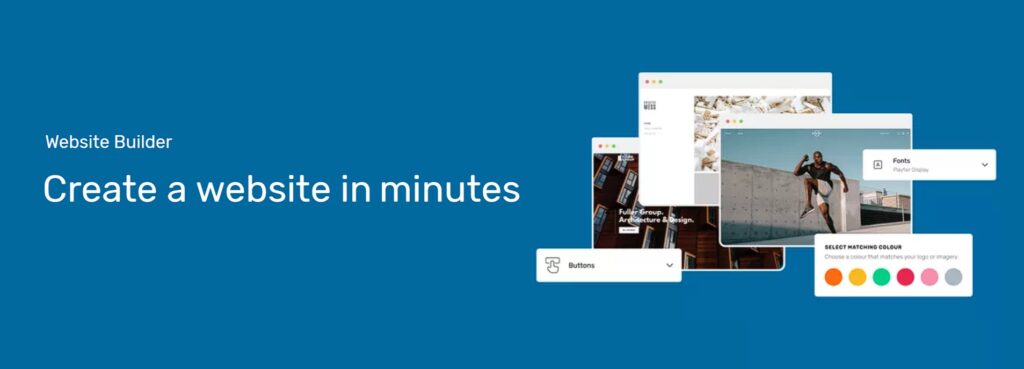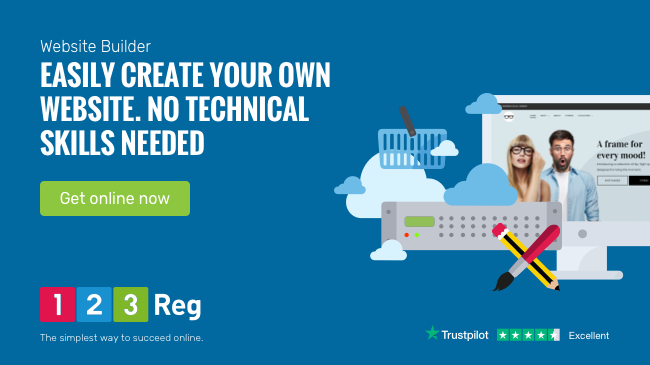Why Facebook is No Substitute for Having Your Own Website
On 4th October 2021, Facebook went down for six hours. For most people, it was just a brief inconvenience. But if you were a business relying solely on Facebook to connect with customers, it would have been a much bigger problem. Imagine if the outage lasted even longer. How would your business have handled it?
When Facebook fails
Fast forward to October 2024, and the owners of the Black Bull pub in Donington, Lincolnshire, faced a devastating blow when their Facebook page — home to over 8,500 followers — disappeared without warning. With 80% of their bookings coming through Facebook, they found themselves cut off from their customers, unable to access reservations, or even contact inquiries. While they suspected the deletion was due to copyright issues, without clear answers, they were left in limbo. “It’s like someone has died,” said one of the owners.
Just goes to show the real-world consequences of relying too heavily on social media platforms. Facebook has made it incredibly easy and free for businesses to create a presence online, but is it wise to make your business 100% dependent on a single platform?
The pros of getting your business on Facebook
Credit where it’s due: Facebook remains one of the biggest social media platforms, with over 2.9 billion monthly users worldwide. Engagement may have dipped, but with around 51 million Brits still on FB, it’s a big part of daily life. For businesses, that means a solid chance to reach a broad audience, whatever the latest trends.
What sets Facebook apart is how it helps businesses interact with people, not just broadcast messages. It gives potential customers a real sense of a brand, making it easier for them to decide if they want to get involved. It’s also a useful way to track competitors, spot trends, and refine your approach with insights into your audience — what they like, when they’re online, and what they’re saying about your brand.
Facebook and Instagram are part of the same system, both owned by Meta. A business sets up a Facebook Page, then manages posts, ads, and messages for both platforms from Meta’s Business Suite.
The platform offers strong advertising tools, letting you target people based on their interests. It’s a useful way to connect with customers, update opening times, collect reviews, and more, even if you already have your own website.
So, while having your own website is always worth it, setting up a Facebook profile — along with a Google My Business profile to stay visible on Google Maps — can still play a key role.
But Facebook shouldn’t be your only tool. A website gives you something far more lasting: a platform where customers can truly get to know your business, engage with your brand, and keep coming back.
See also: Local SEO in 10 – How Do I Get My Business Found Online?
Why having your own website beats Facebook
1. The freedom to create
These days it’s as easy to build your own website, as it is to build a Facebook page. With a tool like 123 Reg Website Builder you can get a site up and running in under an hour.
When you have your own website, the design choices are endless. You’re not stuck with Facebook’s layout and templates. Whether you want to add extra features or just create something unique, you have full control over the look and feel of your site.
Aside from having the freedom to create exactly what you want, you can integrate with any other site or application on the web.
Facebook is a walled garden of pages and applications that will only work with each other. But your website is part of the open, publicly accessible web and therefore able to integrate fully with the full ecosystem of the Internet.
This freedom to create exactly what you want is central to building a memorable brand. Your website gives you the opportunity to create an online experience for your visitors, the chance to plant a unique seed in their memory. It starts with your domain name, but that seed grows through the website and later by email.
By contrast, from local businesses to global brands, all Facebook pages are essentially very similar. Users can’t recall one above the other, there’s no standout. They fail to create a memorable connection with their visitors.
And that’s before we start talking about all the extra functionality that websites can provide. From logged-in customer dashboards, to fully-fledged ecommerce features; Facebook pages don’t touch websites for the variety of things they can do.
2. The freedom to own that creation
If you create a Facebook page, you don’t own that creation: Facebook does.
Your content — whether it’s your posts, photos, or customer interactions—belongs to Facebook. It’s not a sinister thing, but it does mean you’re always at the mercy of their decisions. What if Facebook suddenly changes the rules or limits your ability to communicate with customers?
What if they pull a “Google+” on you? Many businesses poured time and effort into their Google+ profiles, only for the platform to shut down because it didn’t work for Google.
On Facebook, it’s like you’re renting a space in someone else’s café. What happens if the café closes, or the menu changes? You’re left with no control over your own space. Owning your website is like owning the café—you’re in charge of how it runs.
The risk is just too high. You need to own the café, not rent it from someone else. As Avinash Kaushik puts it: “You don’t own the domain, you don’t own the customer data, you don’t create/own the rules, you can’t influence changes, you don’t have a say in how many characters you can type or how long your video can be or how much creativity you can express. You play by their rules, after all you are just renting.”
A website gives businesses the freedom to truly own their online space, to shape their brand experience, and to offer customers a deeper, more personalised journey. With a website, you have full control over your content, design, and functionality. You’re not competing with viral posts, and you’re not limited by Facebook’s rules. Unlike Facebook, your website is a space where you can build your brand for the long haul, not just for the next few seconds in a newsfeed.
3. The freedom to communicate
When your business posts on Facebook, do you know how many people see that post?
Less than 2% of the people that have ‘liked’ your Facebook page.
You read that right. Less than 2%.
A typical local business has around 500 likes. That means that each post is seen by at most 10 people. All that effort to speak to 10 people! You’d be better off walking the streets dressed in a sandwich board; many more would see your message.
On Facebook you need to ‘pay to play’. If you want more of the people who have liked your page to see your post, you need to get the credit card out. Facebook charges you to talk to people who, by liking your page, have already said they’re happy to have that conversation.
Facebook owns the medium and they want you to pay to use it. By contrast, anyone who is on your website gets your message for nothing. Yes, you have to invest in marketing techniques to promote your site, but that money is an investment in building your brand. If you’re paying to drive people to a Facebook page, you’re investing in Facebook’s brand.
See also: Why Every Business Needs a Professional Email Address
4. The freedom to benefit from your efforts
Every time you do something great on Facebook, a part of the benefit goes to you, but a significant part goes to Facebook.
‘I saw that great thing on Facebook’ is what people say. They don’t say ‘check out this brand’.
This means that just a proportion of your efforts end up benefiting your brand, and the rest goes to Facebook. You’ve helped make their environment a more appealing place for people to hang out. They’re reaping what you sowed.
Or, to put it another way: if your business left Facebook, would anyone really care? Most of your customers wouldn’t notice. They’d move on to consume someone else’s content.
Yet every hour you pour into your website will benefit your business. A great blog post, an updated design, a compelling image; all these create a lasting benefit to your brand. Visitors will remember your name, and when they talk about your business they’ll refer people to your website — not Facebook. You’ll earn the benefit of the referral and maximise the chance to build on it.
5. The freedom to build your own brand
Because Facebook is pay-to-play, you can’t build a lasting communication channel to current and future customers. Every time you want to say something and to actually be heard, you need to dip your hand in your pocket.
By contrast, the effort you put into building your website will turn into organic, free marketing channels between you and your customers. If you create a compelling site or add a piece of great content, it’s your website that will get shared online.
This in turn will lead to links from other sites, as those discovering you start to write about and link to your content. These shares and links are a valuable and lasting source of referral traffic to your site. On top of that, they’re the backbone to your search engine optimisation strategy and will drive your website rankings ever higher.
Your website also opens up the opportunity to foster relationships on email. By capturing addresses, you can build an effective channel, likely to give you the highest ROI of all. And despite the rise of social, email remains the king of one-to-one marketing. No channel will work as hard for as little.
And when paired with a professional custom email address, you can build trust and credibility, and make every interaction feel more official. It’s a simple but powerful way to build lasting relationships with customers.
See also: .com vs .co.uk – Which is Best for Your British Business?
6. The freedom to build customer relationships
The relationship between brands and customers on Facebook tends to be short-lived.
Your business pops up in front of your audience for a moment, then vanishes. Even the most engaging posts are only seen for a brief time—less than a minute in many cases. On top of that, Facebook counts a video “view” after just 3 seconds.
The challenge is that your brand has to be more captivating than your customers’ friends and more interesting than the latest viral story in their feed.
A website allows for a deeper, more lasting connection with your customers. While you may not get as many visitors as Facebook’s massive audience, those who do visit are engaging with you on a much deeper level.
This is reflected in the average time spent on a well-designed website. When your site meets customer needs and offers valuable content, visitors often spend several minutes exploring. By limiting access to your audience and reducing the depth of engagement, Facebook makes it harder for businesses to form meaningful relationships with customers. You can’t rely on that.
The Facebook machine is huge, but it doesn’t offer the kind of long-term, authentic connections that a website can.
Wrap up
Love it or loathe it, Facebook is an easy way to stay connected with friends, discover new brands, and keep up with the latest trends. It’s a big platform and lets businesses reach a vast audience and interact with customers. But when it comes to building a brand and establishing trust, Facebook simply doesn’t measure up to what a website and custom email can offer.


